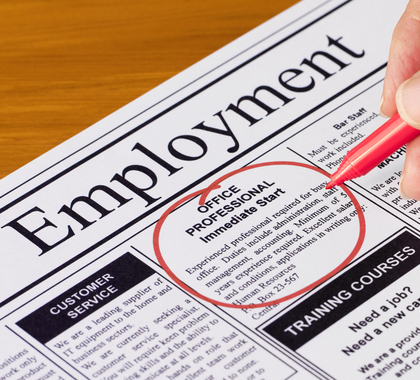Testimony Before the Colorado Senate Business, Labor, and Technology
Matthew Glans, The Heartland Institute
March 14, 2018
Chairman Tate and Members of the Committee:
Thank you for giving me the opportunity to testify in support of Senate Bill 18-193.
My name is Matthew Glans. I am the senior policy analyst at The Heartland Institute, a 34-year-old national nonprofit research and education organization. The Heartland Institute is headquartered in Illinois and focuses on providing national, state, and local elected officials with reliable and timely research and analyses on important policy issues.
Licensing laws can have a wide-ranging effect on a state’s economy. When a state imposes a burdensome licensing regime, competition shrinks and the price of basic services increases. In many instances, these laws are unnecessary; government involvement does not guarantee better or safer services.
Although Colorado is one of the more effective states at limiting its licensing standards, there are still several areas where it can improve. Rolling back excessive certification and using voluntary certification are viable options for empowering consumers to choose the best services on their own, allowing the free market to self-regulate. By regulating occupations through registration, certification permits, and licensure, states have a strong and often harmful influence on dozens of industries, making it more difficult for new and existing businesses to operate or expand and creating a system in which cronyism thrives.
In a 2015 article published by The Hamilton Project, Morris Kleiner, a professor of public affairs at the University of Minnesota and a chair in labor policy for the AFL-CIO, examined the effects of occupational licensing laws on the price and quality of products and found these laws unnecessarily harm consumers by increasing prices of goods and services without providing any appreciable quality increases.
Occupational licensure laws have an especially strong effect on lower-income consumers and entrepreneurs and the licensing process places unnecessary hurdles for jobseekers. According to the Institute for Justice, on average, low- and medium-income jobseekers in licensed professions are required to spend nine months in education or training, pass an exam, and pay more than $200 in fees before beginning their new jobs.
The legislation being discussed today would help keep Colorado accountable for the licensing rules and standards it has on the books. By explicitly requiring all licensing rules or ordinances to fulfill a legitimate public health, safety, or welfare objective, this proposal would tear down unnecessary barriers to entry for thousands of Colorado citizens, making Colorado the national leader in occupational licensing.
When requiring such a broad review of government regulations, allowing an appropriate amount of time to conduct a thorough and efficient study is important. The deadline of July 1, 2019, would give states and local governments ample time to conduct their analyses.
Occupational licensing places the greatest burden on the individuals seeking a license. Empowering these entrepreneurs to petition for repeal or a change in specific regulations in a quick and expedient manner is essential for the long-term success of these reforms. Any delay in licensing or punitive rule changes can cost a business thousands of dollars in lost profits, lead to fewer customers, or even result in closure.
Like many components of this bill, a requirement to respond to licensing and rules claims in 90 days would hold the state accountable for proving its licensing rules are necessary—and repeal them when appropriate.
Disputes over occupational licensing rules often end up in court. SB 18-193 would streamline this process by permitting petitioners to challenge any denial in court. Further, the bill would put the burden of proving the licensing rule is necessary on the state by instructing the court to rule in favor of the party challenging the rule if the rule is found to either burden the creation or market entry of a business or is not demonstrably necessary to fulfill a legitimate objective. The proposal also provides for a less burdensome legal standard for these appeals, requiring only for proof based on the preponderance of the evidence.
Like all states, Colorado needs to create more employment opportunities for its citizens. Loosening its occupational licensing laws would be a good step toward opening up additional industries for expansion and empowering entrepreneurs to start their own businesses, the ultimate engine for economic growth.
Thank you for your time.
* * *
For more information about The Heartland Institute’s work, please visit our websites at www.heartland.org and www.heartland.org/government-relations, or call Charlie Katebi at 312/377-4000 or reach him by email at [email protected].




